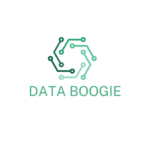Key Takeaways
- Importance of Staying Updated: Regularly following ad tech news is essential for marketers and businesses to remain competitive in a rapidly changing digital landscape.
- Programmatic Advertising Growth: Programmatic advertising is projected to account for over 80% of digital ad spending by 2024, emphasizing the need for data-driven campaign optimization.
- AI and Machine Learning Advancements: These technologies enhance audience segmentation and personalization, allowing marketers to improve customer experiences and campaign effectiveness.
- Key Industry Players: Major companies like Google, Facebook (Meta), Amazon, and Adobe dominate the ad tech space, significantly influencing market trends and innovations.
- Impact of Privacy Regulations: Compliance with laws such as GDPR and CCPA is crucial, as non-compliance can lead to heavy fines and reputational damage for companies.
- Significance of Data Analytics: Advanced data analytics tools provide actionable consumer insights, enabling brands to make informed decisions and improve advertising strategies.
In a rapidly evolving digital landscape, staying updated on ad tech news is crucial for marketers, advertisers, and businesses alike. The advertising technology sector is constantly innovating, with new tools and strategies emerging to enhance targeting, measurement, and overall campaign effectiveness. Understanding these developments can give companies a competitive edge in reaching their audiences more effectively.
From advancements in programmatic advertising to the impact of privacy regulations, the ad tech industry is a dynamic space filled with opportunities and challenges. As trends shift and consumer behaviors change, keeping a finger on the pulse of ad tech news ensures that stakeholders can adapt and thrive in this fast-paced environment.
Ad Tech News
Staying ahead in advertising technology requires awareness of current trends that reshape the industry. Key developments include the rise of programmatic advertising and advancements in AI and machine learning.
Rise of Programmatic Advertising
Programmatic advertising continues to gain traction as brands seek efficiency and precision in ad spend. Automation drives buying and selling of ad inventory in real-time, optimizing targeting capabilities. Reports indicate that programmatic ad spending is projected to reach $100 billion by 2024, comprising over 80% of digital ads. This trend allows advertisers to leverage data-driven insights for tailored campaigns, enhancing engagement and return on investment.
Advancements in AI and Machine Learning
Artificial intelligence and machine learning are transforming the ad tech landscape. These technologies enable better audience segmentation, personalized content delivery, and predictive analytics. For instance, AI algorithms can analyze vast datasets to identify consumer behavior patterns, allowing marketers to fine-tune their strategies. A study found that 63% of marketers recognize AI as essential for improving customer experiences. These advancements lead to smarter ad placements and increased campaign effectiveness in an increasingly competitive environment.
Key Players in the Ad Tech Industry
Understanding the key players in the ad tech industry provides insights into the market dynamics and competitive landscape. Notable companies and emerging startups contribute significantly to innovation and advancements in advertising technology.
Major Companies to Watch
Google dominates the ad tech space with its robust advertising platform, Google Ads. It offers tools for search, display, and video advertising, leveraging extensive data analysis for effective targeting.
- Facebook (Meta Platforms, Inc.)
Facebook excels in social media advertising, utilizing user data to optimize ad placement on its platforms. Its focus on engagement and targeting enhances advertisers’ ability to reach specific audiences.
- Amazon
Amazon’s advertising services capitalize on its vast e-commerce data. It offers tailored ad solutions that integrate product listings with brand promotions, driving higher conversion rates.
- Adobe
Adobe provides comprehensive marketing solutions through Adobe Experience Cloud. Its offerings include advanced analytics, audience segmentation, and creative tools that empower marketers to enhance campaign performance.
- The Trade Desk
The Trade Desk specializes in programmatic advertising, providing a platform for data-driven digital ad buying. It allows advertisers to optimize their campaigns across various channels with real-time analytics.
- Criteo
Criteo focuses on performance marketing through retargeting solutions. Its technology helps brands deliver personalized ads based on user engagement, improving conversion rates.
- AdRoll
AdRoll offers an integrated platform for display, social, and email advertising. It emphasizes cross-channel marketing, enabling brands to maintain consistent messaging across multiple touchpoints.
- Transunion
Transunion leverages data and analytics to drive targeted advertising solutions. Its focus on consumer insights enhances advertisers’ ability to reach potential customers effectively.
- StackAdapt
StackAdapt combines programmatic advertising with native advertising formats. Its platform facilitates engaging, data-driven ad campaigns while optimizing media spend for diverse audiences.
- GumGum
GumGum specializes in contextual advertising using computer vision technology. Its unique approach targets ads based on the visual content of websites and videos, enhancing relevance and engagement.
Regulatory Changes Impacting Ad Tech
Regulatory changes significantly shape the ad tech landscape, forcing stakeholders to adapt to new standards. Privacy regulations, in particular, present both opportunities and challenges for advertisers and tech providers.
Privacy Regulations and Their Effects
Privacy regulations, such as the European Union’s General Data Protection Regulation (GDPR) and California’s Consumer Privacy Act (CCPA), impose strict requirements on data collection and usage. Compliance with these regulations impacts how companies gather and manage consumer data. Non-compliance can lead to substantial fines; for instance, fines under GDPR can reach up to €20 million or 4% of annual global revenue, whichever is higher. These constraints encourage businesses to prioritize transparency in their marketing strategies and invest in technologies that ensure consumer privacy. As a result, many advertisers explore cookie-less tracking methods, such as server-side tracking and first-party data utilization, to enhance audience targeting while respecting user privacy.
Compliance Challenges for Advertisers
Compliance challenges arise as regulations evolve and vary across regions. Advertisers face difficulties in navigating complex legal frameworks, leading to potential discrepancies in global campaigns. Tracking and adhering to multiple regulations can strain resources, requiring investments in compliance training and technology. Furthermore, inadequate compliance can hinder brand reputation, as consumers increasingly favor brands that demonstrate responsibility in data handling. In 2023, 60% of consumers expressed concerns over how brands utilize their data, influencing purchasing decisions. To mitigate risks, advertisers adopt proactive compliance strategies, including hiring legal experts and leveraging compliance software to streamline adherence to regulations.
Innovations in Advertising Technology
Innovations in advertising technology are driving significant enhancements in how brands connect with consumers. Marketers leverage advanced tools and strategies for greater effectiveness and efficiency in their campaigns.
Personalization and Targeting Strategies
Personalization remains a crucial focus area in ad tech innovations. Brands utilize sophisticated algorithms to analyze consumer behavior across platforms, enabling tailored messaging that resonates better with audiences. Techniques like dynamic creative optimization deliver customized ad experiences based on user interactions, improving engagement rates. Additionally, context-aware advertising places relevant ads in the right environments, further enhancing conversion potential. As a result, companies achieve a more profound connection with their target markets, increasing brand loyalty.
The Role of Data Analytics
Data analytics plays a pivotal role in shaping advertising strategies. Advanced analytics tools aggregate massive datasets to extract actionable insights about consumer preferences and trends. This data informs decisions on campaign adjustments in real-time, ensuring optimal performance. Predictive analytics forecasts customer behaviors, allowing brands to engage audiences at the right moments. Furthermore, machine learning algorithms enhance data processing efficiency, enabling more accurate audience segmentation. These analytical capabilities empower advertisers to refine their approaches continually, leading to improved return on investment and more impactful marketing efforts.
Staying updated in the ad tech arena is crucial for anyone involved in marketing or advertising. The rapid evolution of tools and strategies demands that businesses remain agile and adaptable. As programmatic advertising and AI technologies take center stage, understanding these trends will be vital for success. Navigating privacy regulations adds another layer of complexity, but it also presents an opportunity for brands to build trust through transparency. The key players in the industry continue to innovate, offering diverse solutions that enhance audience engagement and campaign effectiveness. By embracing these changes and leveraging data-driven insights, advertisers can foster stronger connections with consumers and achieve better returns on their investments. The future of ad tech promises exciting possibilities for those ready to embrace the journey ahead.



